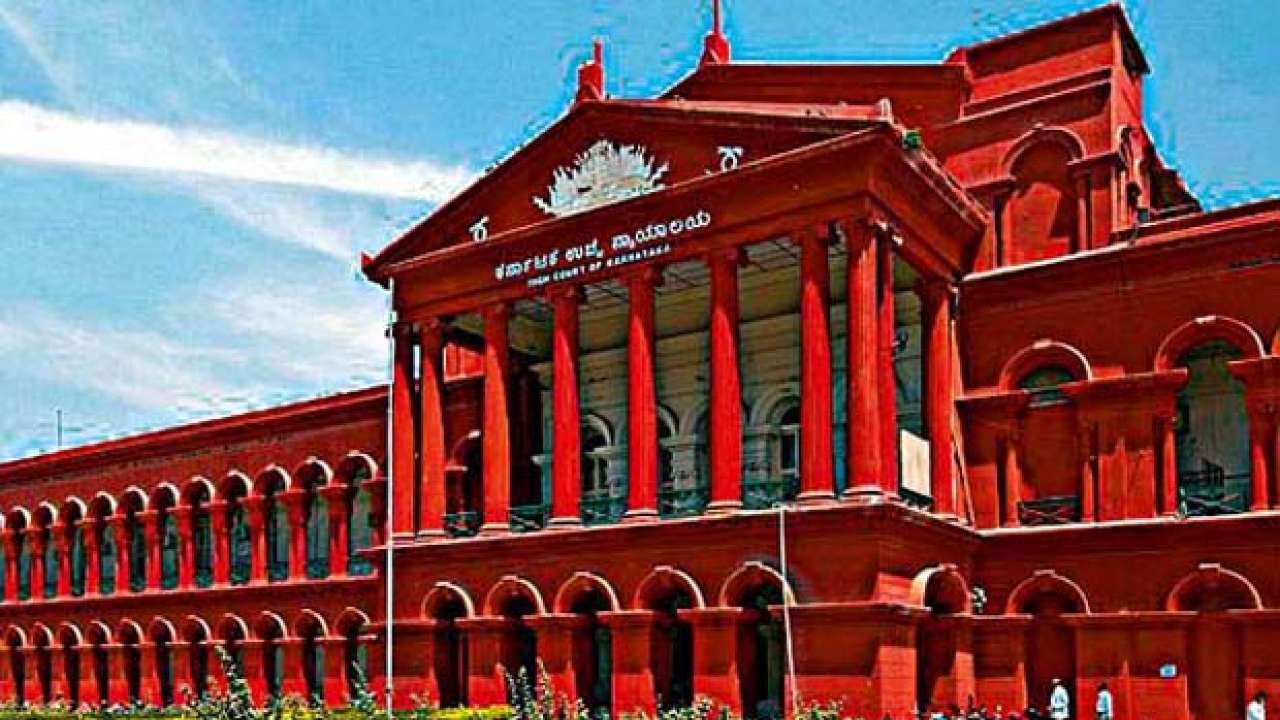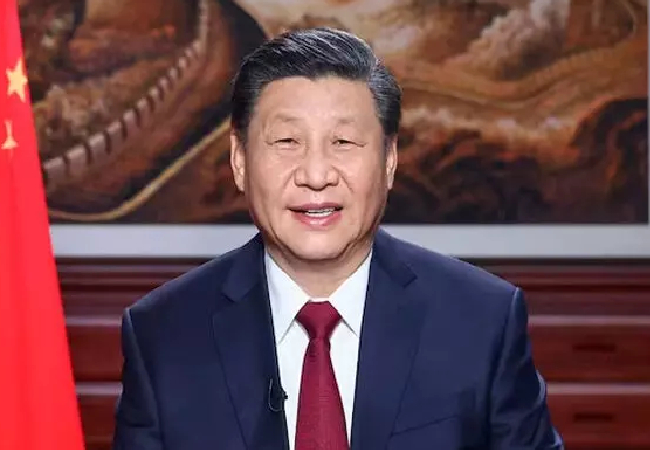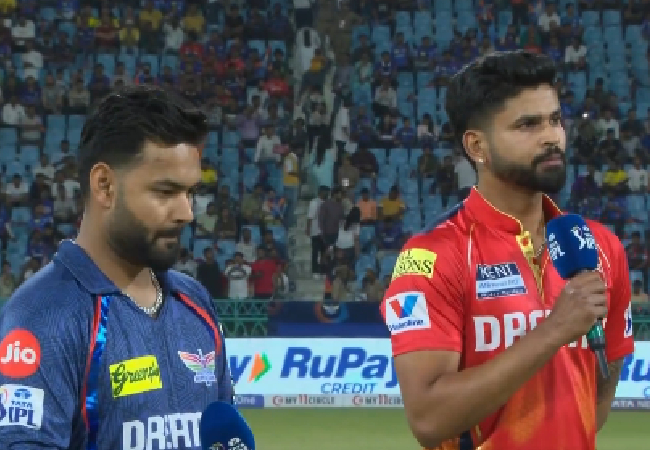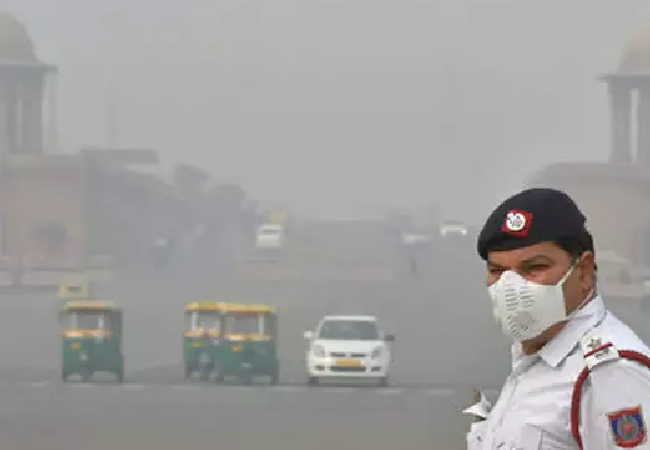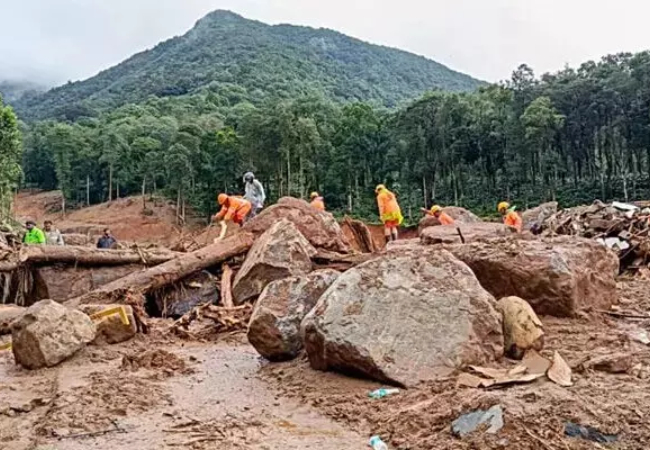Bengaluru, Jul 22: The High Court of Karnataka has reduced the sentence of a murder convict from "imprisonment till his last breath" to "life imprisonment" that would entitle him for remission after 14 years.
The High Court, which gave its judgment on an appeal filed by the convict recently, said that "such special category sentence can only be imposed by High Court or Supreme Court and not by trial court" as held by the Supreme Court in its judgment in the case of Union of India vs V Sriharan alias Murugan and others.
Two appeals were filed before the HC by Harish and Lokesh, the first and third accused in the murder of one D R Kumar.
Harish was in love with Radha, the wife of Kumar, and this led to the plot to murder the latter. On February 16, 2012, when Kumar was working in a field in Chollemarada village in Hassan district, Harish hit him on the head with a rod, kicked him on the head and chest and murdered him.
Later, with the help of his brother Lokesh, he transported the body in a goods rickshaw and buried it in a vacant land.
Harish, Radha and Lokesh were put on trial and convicted by a sessions court in Hassan on April 25, 2017. Harish was sentenced to undergo imprisonment for life i.e., till his last breath, and a fine of Rs 50,000 under Section 302 (murder) of the Indian Penal Code. He was also sentenced under Section 120(B) and Section 201 of the IPC. He was also ordered to pay Rs 3 lakh to the two children of Kumar.
The HC bench of Justices K Somashekar and Rajesh Rai K upheld the conviction of Harish but said the sentence by the trial court was not correct.
"The sentence imposed against accused No. 1 by the trial court by directing him to undergo imprisonment i.e., till his last breath is concerned, in our considered opinion the said sentence is not sustainable under law for the reason that the Hon'ble apex court in the case of Union of India vs V Sriharan alias Murugan and others. In such circumstances, the sessions court cannot exercise such power to impose imprisonment to accused No. 1 till his last breath," it said.
The HC said the Supreme Court has mandated three tests -- crime test, criminal test and rarest rare test -- in such cases.
"So for as the present case is concerned, both the crime and criminal tests have been satisfied against the accused but, rarest rare test is concerned, the prosecution failed to prove the same by leading cogent evidence that the crime was committed in a barbaric manner and hence the instant case would not fall under the category of rarest of the rare case. As such, the punishment awarded by the trial court by imposing the imprisonment to accused No. 1 till his last breath has to be modified to life imprisonment instead of the last breath of his life," the HC said.
The HC also set aside all the charges against Lokesh. It said "the prosecution failed to prove his guilt by leading any cogent evidence". He had been convicted by the trial court solely on the basis of the voluntary statement of the co-accused (Harish). "It is the settled position of law that the voluntary statement of the co-accused cannot be a base for conviction of other accused," the HC said.
The petitions of the first and third convict were heard and a common judgement delivered by the division bench. The second convict (Radha) had not filed an appeal.
The bail and surety bond of Harish was cancelled and he was given two weeks to surrender before the trial court to serve his sentence.
Let the Truth be known. If you read VB and like VB, please be a VB Supporter and Help us deliver the Truth to one and all.
Beijing (PTI): In a message marking 75th anniversary of their bilateral relations, Chinese President Xi Jinping on Tuesday stressed on partnership between India and China for “mutual achievement” and the need to do the “dragon-elephant tango” to serve their fundamental interests.
Apart from President Xi's message to his counterpart Droupadi Murmu, Chinese Premier Li Qiang and Prime Minister Narendra Modi too exchanged congratulatory messages to mark the occasion, the Chinese Foreign Ministry announced here.
In her message, Murmu said a stable, predictable and friendly bilateral relationship will benefit both countries and the world, state-run Xinhua news agency reported.
The development comes amid the efforts to reset the ties after over four years of freeze due to the eastern Ladakh military standoff.
President Xi, in his message to Murmu, said China and India, both ancient civilisations, major developing countries and important members of the Global South, are at a critical stage of their respective modernisation efforts.
“The development of China-India relations demonstrates that it is the right choice for China and India to be partners of mutual achievement and realise the 'dragon elephant tango,' which fully serves the fundamental interests of both countries and their peoples,” Xinhua said quoting Xi.
Xi called on both sides to view and handle bilateral relations from a strategic height and long-term perspective, seek a way, which features peaceful coexistence, mutual trust, mutual benefit and common development, for neighbouring major countries to get along with each other, and jointly promote a multi-polar world and greater democracy in international relations.
He also said he stands ready to work with Murmu to take the anniversary of ties as an opportunity to enhance strategic mutual trust, strengthen exchanges and cooperation in various fields, deepen communication and coordination in major international affairs, jointly safeguard peace and tranquility in the China-India border area, push forward a sound and steady development of bilateral relations and contribute to world peace and prosperity.
For her part, Murmu said India and China are two major neighboring countries that are home to one-third of the world's population, noting that a stable, predictable and friendly bilateral relationship will benefit both countries and the world.
She proposed to take the 75th anniversary of diplomatic ties as an opportunity to jointly promote the sound and steady development of India-China relations, Xinhua reported.
Earlier, Chinese Foreign Ministry spokesperson Guo Jiakun while announcing the exchange of greetings by the leaders told media briefing here that the historical course of our bilateral relations shows that being partners that contributed to each other's success and the cooperative dance of 'the dragon and the elephant' is the right choice for both sides.
Under the strategic guidance of the leaders of our two countries, China stands ready to work with India to view and handle bilateral relations with a strategic and long-term perspective and take this occasion as an opportunity to enhance strategic mutual trust and step up exchanges and cooperation in various fields, Guo said.
He was referring to how Modi and Xi provided strategic guidance for the development of bilateral relations at their meeting at Kazan in Russia on the sidelines of the BRICS summit last year.
The two sides are implementing the consensus of the two leaders and are promoting cooperation and achieving fruitful outcomes.
Both the countries should also deepen communication and coordination in major international affairs, jointly maintain peace and tranquility in the border areas and advance China-India relations on the track of sound and stable development, Guo said.
To a question about the plans by both the countries to celebrate the 75th anniversary of diplomatic relations, he said the two sides have the willingness to take the occasion to advance the bilateral relations.
Details of the specific events will be released in due course, he said.
After last year's meeting between Modi and Xi, both countries held a series of high level meetings, including that of the Special Representatives (SRs) of the boundary mechanism followed by the visit of Foreign Secretary Vikram Misri to Beijing for talks to normalise relations after the four-year freeze in relations due to the Ladakh standoff.
This year, on March 25, India and China held a fresh edition of diplomatic talks in Beijing focusing on ensuring effective border management and early resumption of cross-border cooperation and exchanges, including on trans-border rivers and resumption of the Kailash Mansarovar Yatra.
In the meeting of WMCC (Working Mechanism for Consultation & Coordination) on China-India Border Affairs, the two sides explored various measures and proposals to give effect to the decisions taken during talks between NSA Ajit Doval and Chinese Foreign Minister Wang Yi at the Special Representatives (SR) dialogue in December.
On the following day, Gourangalal Das, the joint secretary in the MEA's East Asia division, and Liu Jinsong, the director general at the Chinese foreign ministry's department of Asian Affairs met in Beijing during which they explored ways to rebuild ties and agreed to initiate efforts to promote people-to-people exchanges, including arrangements for resumption of direct flights and to resume Kailash Manasarovar Yatra this year.
In the meeting, the two sides also discussed resumption of dialogue mechanisms in a step-by-step manner to utilise them to address each other's priority areas of interest and concern and move the relations to a more stable and predictable path, the Ministry of External Affairs (MEA) had said in a press release.

